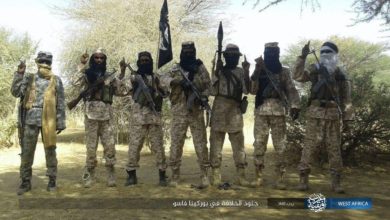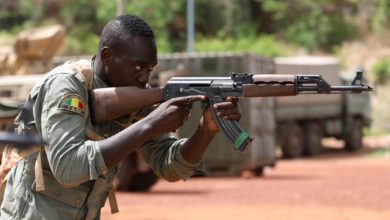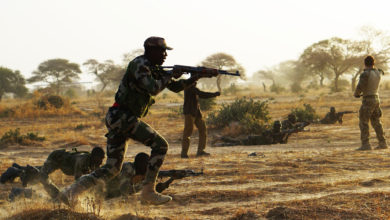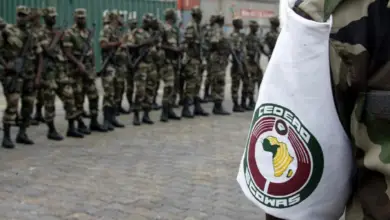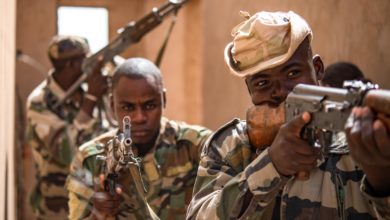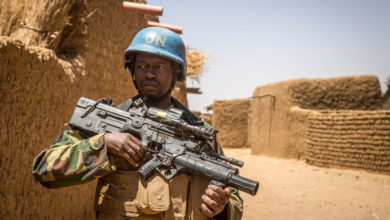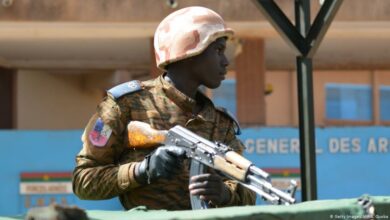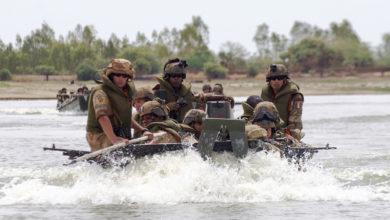Malian troops on Monday, February 10 began deploying to Kidal, a northern town that has long been a symbol of government absence in the strife-torn north.
Mali’s President Ibrahim Boubacar Keita said in an interview with French media due to be broadcast on Monday that the army is “as we speak, moving towards Kidal, and I think it’s a very good thing.”
Keita said the army should reach Kidal on Friday, after setting off from Gao, around 285 km southwest.
He warned that the journey was fraught with danger, however.
“It is therefore normal that the general staff … Malian forces and the allied forces, act cautiously,” he told France 24 and Radio France Internationale (RFI).
Some 200 men are making their way north to Kidal in several dozen vehicles, said a Malian army officer who requested anonymity.
The Malian Armed Forces (FAMa) tweeted images of troops departing from Gao.
Les #FAMa ont pris la route pour #Kidal. Elles ont démarré ce lundi 10 février 2020 de #Gao. pic.twitter.com/E2p6pWG6dX
— Forces Armées Maliennes (@FAMa_DIRPA) February 10, 2020
In a release, FAMa said the Battalion of the Reconstituted Armed Forces, made up of troops from the regular army, the CMA and the Platforme, set off for Kidal at approximately 2:30 p.m., and that “the normal route will allow them to be there in 72 hours.”
The complex insurgency in sub-Saharan Africa’s Sahel region began in Mali in 2012, when a Tuareg separatist uprising was exploited by al-Qaeda-linked extremists who took key cities in the desert north. Former colonial power France began its Operation Serval military intervention the following year, driving the jihadists from the towns.
But the militant groups morphed into more nimble formations operating in rural areas, and the insurgency gradually spread to central and southern regions of Mali and then into Burkina Faso and Niger.
Thousands of people have died in the conflict, which Mali has struggled to contain even with the help of thousands of foreign troops.
However, the return of Malian troops to Kidal is considered a step towards the government reasserting control over its vast territory.
On January 30, President Keïta decreed Mali is to launch Operation Maliko to counter terrorism and reassert state control.
Soldiers deploying to Kidal is considered a key component in implementing the Algiers peace agreement, struck between the government in Bamako and some rebel groups in 2015.
That agreement is in turn seen as one of Mali’s few viable escape routes from a vicious cycle of violence.
Keita admits contacts with Mali insurgents
President Keita for the first time appeared to acknowledge contacts with insurgents, an option that has long been considered beyond the pale for the government.
“The number of deaths in the Sahel is becoming exponential and it’s time that certain paths be explored,” he said in the interview.
More than 4,000 people were reported killed in militant attacks in the Burkina Faso, Mali and Niger last year, according to the United Nations, and Secretary-General Antonio Guterres has warned that the spiraling violence in the Sahel has spread to coastal states of West Africa.
But Keita appeared to have changed course on past refusals to engage.
“We are ready to build bridges for dialogue with everyone … at some point, we have to sit around a table and talk,” he said.
He said he had sent former president Dioncounda Traore “on a mission.”
“He is my high representative, so his job is to listen to everybody,” the president said.
Traore was chiefly tasked with seeing if there were people who “could be sensitive to a discourse of reason.”
However, Keita also said he was “not naive” about the likelihood of success.
“Those who order others to enter a mosque and blow themselves up in the middle of the faithful don’t have much of my esteem,” he said.
Kidal first, then Menaka and Timbuktu
Kidal fell to separatist Touareg rebels in 2012, and the National Movement for the Liberation of Azawad unilaterally declared a short-lived independence for Azawad, which comprises the Kidal, Menaka, Gao and Timbuktu regions.
But militants retain a strong presence in the town despite the presence of U.N. peacekeepers and French troops.
The rebels late signed a peace accord with the government in Bamako in 2015, although it remains shaky. Among other things, the pact provided for former rebels joining the army, which would eventually return north.
The issue of Kidal remains tense, however.
Mali’s neighboring governments are often wary of former rebel groups, for example, suspecting them of cooperating with jihadists. They view Kidal as a rear base for Islamist militants.
France’s position in the city has also fed suspicions across Mali, contributing to calls to end the former colonial power’s military presence in the country.
Both the France-led Operation Barkhane and MINUSMA, the U.N. peacekeeping mission in Mali, support the army’s return to Kidal, said a senior army officer, who declined to be named.
Malian army units returning to the city are so-called “reconstituted” ones, comprised of regulars and former rebels who joined the military after the 2015 peace accord.
Other such units are expected to deploy in northern Malian cities such as Menaka, Gao and Timbuktu, after the soldiers reach Kidal.
Mali to launch major new military Operation Maliko to counter terrorism and assert state authority
With reporting from AFP



